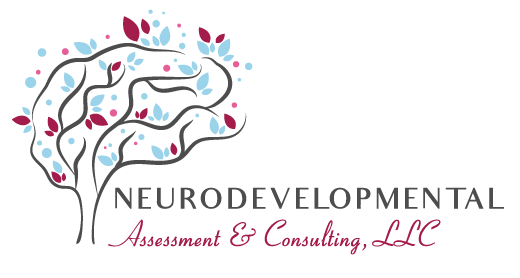Updated May 17, 2021
Our office recognizes the CDC’s recent guidance on lifting mask restrictions for vaccinated individuals. However, as a healthcare setting that serves many individuals who cannot be vaccinated due to age or health condition, as well as many individuals with underlying health conditions that may be more vulnerable to the effects of COVID-19, at this time our office will continue to require masks for all in-person appointments at all times. Please see below for our office’s health and safety procedures.
Effective May 1, 2021
The novel coronavirus, COVID-19, has been declared a worldwide pandemic by the World Health Organization. COVID-19 is extremely contagious and is believed to spread mainly from person-to-person contact. In order to continue to serve our clients and patients, Neurodevelopmental Assessment & Consulting, LLC has put in place the following preventative measures to reduce the spread of COVID-19 in our office. In order to participate in in-person appointments in our office, we ask that you read through this document carefully. By participating in an in-person appointment at our office, you acknowledge that you understand the risks of an in-person appointment and agree to the procedures below. Neurodevelopmental Assessment & Consulting, LLC reserves the right to change or modify these procedures at any time in order to protect the health and safety of our patients, clients, and employees and/or to comply with local, state, or federal mandates or public health directives.
Continued Telehealth Appointments As Appropriate
Neurodevelopmental Assessment & Consulting, LLC will continue to continue to make telehealth appointments available for services that can be completed via telehealth. These services include, but are not limited to, therapy/counseling appointments, executive functioning/academic coaching appointments, psychological or neuropsychological testing interviews and feedback sessions, clinical and professional consultations, attendance at meetings, ASD diagnostic evaluations (for ages 3-7), ADHD screening evaluations, and career assessments.
Virtual appointments will be conducted using GoToMeeting (with SpruceHealth as a back-up, if necessary); both of these platforms are HIPAA-compliant in order to protect privacy and provide a high-level of security.
Due to state licensing laws, virtual appointments can only be conducted with clients/patients who are located within the states of PA, DE, AL (starting 6/1/2021), AZ, CO, DC, GA, IL, KY (starting 6/29/2021), MO, NE, NH, NV, NC, OH (starting 7/26/2021), OK, TX, UT, VA, WV (starting 7/6/2021), or NJ (temporary NJ license is valid only through 06/30/2021) at the time of service.
School/Home Observations and Meeting Attendance
At this time, we will not be conducting any school/home observations or visits or attending any off-site meetings in-person (though we are happy to participate virtually).
In-Office, Face-to-Face Appointments
Neurodevelopmental Assessment & Consulting, LLC is offering limited, in-office appointments for psychological, diagnostic, psychoeducational, and neuropsychological testing, starting May 1, 2021. Additionally, we plan to allow in-person, face-to-face appointments for therapy starting July 1, 2021. The office will be using the following procedures:
- We will continue to conduct certain parts of psychological, psychoeducational, and neuropsychological evaluations virtually, including interviews, rating scales, and feedback sessions, to minimize contact and exposure.
- In-office appointments will be staggered to reduce the number of people in the office/waiting room at the same time, to allow for adequate time between appointments for cleaning, and to reduce airborne transmission of COVID-19.
- We are resuming offering full-day appointments for psychoeducational and neuropsychological evaluations, which will also reduce the number of visits required and shorten wait times for these appointments.
- We will continue to contact all clients and patients via email to screen for potential COVID-19 symptoms or exposures and provide informed consent for in-person appointments. It is very important that clients and patients (or their parents/guardians) respond to these screening questions and sign these documents. If we do not receive the answers to these screening questions prior to the appointment, the appointment will be canceled and rescheduling options will be offered. If anyone in the household has displayed any symptoms of COVID-19 or has been diagnosed with COVID-19 in the 14 days prior to the appointment, a telehealth appointment will be offered (if possible) or the appointment will be rescheduled. Cancellation fees will be waived for appointments canceled for these reasons.
- We continue to request that parents, guardians, and others who accompany a patient or client to an appointment wait in their cars in the parking lot or leave and return at the conclusion of the appointment. However, you may choose to wait in the waiting room at your own risk.
- All clients and patients will be required to wear a mask at all times when in the office suite and throughout the entirety of the appointment. The clinician will also be wearing a mask for the entirety of the appointment.
- There will be no in-person contact (e.g., handshakes). Live video monitors will be used to monitor those entering the office (no recordings will be made).
- Psychological and neuropsychological testing will be completed face-to-face. Clinicians will be seated across the room from clients and patients in order to maintain social distancing. Masks will be worn at all times. Plexiglass shields and air purifiers will be used to minimize airborne transmission. Whenever possible, iPads will be used to administer tests in order to minimize the exchange of materials.
- All test materials will be disinfected after each use. Furniture will also be wiped down with disinfectant after each appointment. Air purifiers will be kept in each room and run regularly. Additionally, the building cleaning services will be cleaning the office nightly.
Limitations to face-to-face appointments:
- Appointments for therapy/counseling or evaluations/assessments may be discontinued if the client or patient is unable to maintain appropriate social distancing or use PPE. In these cases, we will discuss potential options via telehealth.
- Neurodevelopmental Assessment & Consulting, LLC cannot guarantee, nor do we promise, that evaluation results conducted remotely will be accepted by school districts, court systems, Social Security/Disability, Veterans Administration, etc. In fact, it is likely that these organizations will also be grappling with a new reality and their policies may change. We will attempt to keep up-to-date on changing policies of our referral sources and will do our best to meet their requirements. If you need an evaluation for a specific purpose, such as a disability claim or special education eligibility, please discuss your options with our office. In some cases, we may recommend waiting until evaluations can be conducted under standardized conditions, as we do not want to put our clients in the position of completing an evaluation that cannot be used for the intended purpose.
Conclusion
We thank you for your continued support of our efforts to continue to serve our clients and patients while also adopting to new processes and procedures. We are attempting to balance the integrity and quality of our services, the needs of our clients and patients, and the health and safety of those we encounter in our work. We reserve the right to change or modify these procedures at any time as circumstances change or to comply with local, state, or federal mandates or public health guidance.




